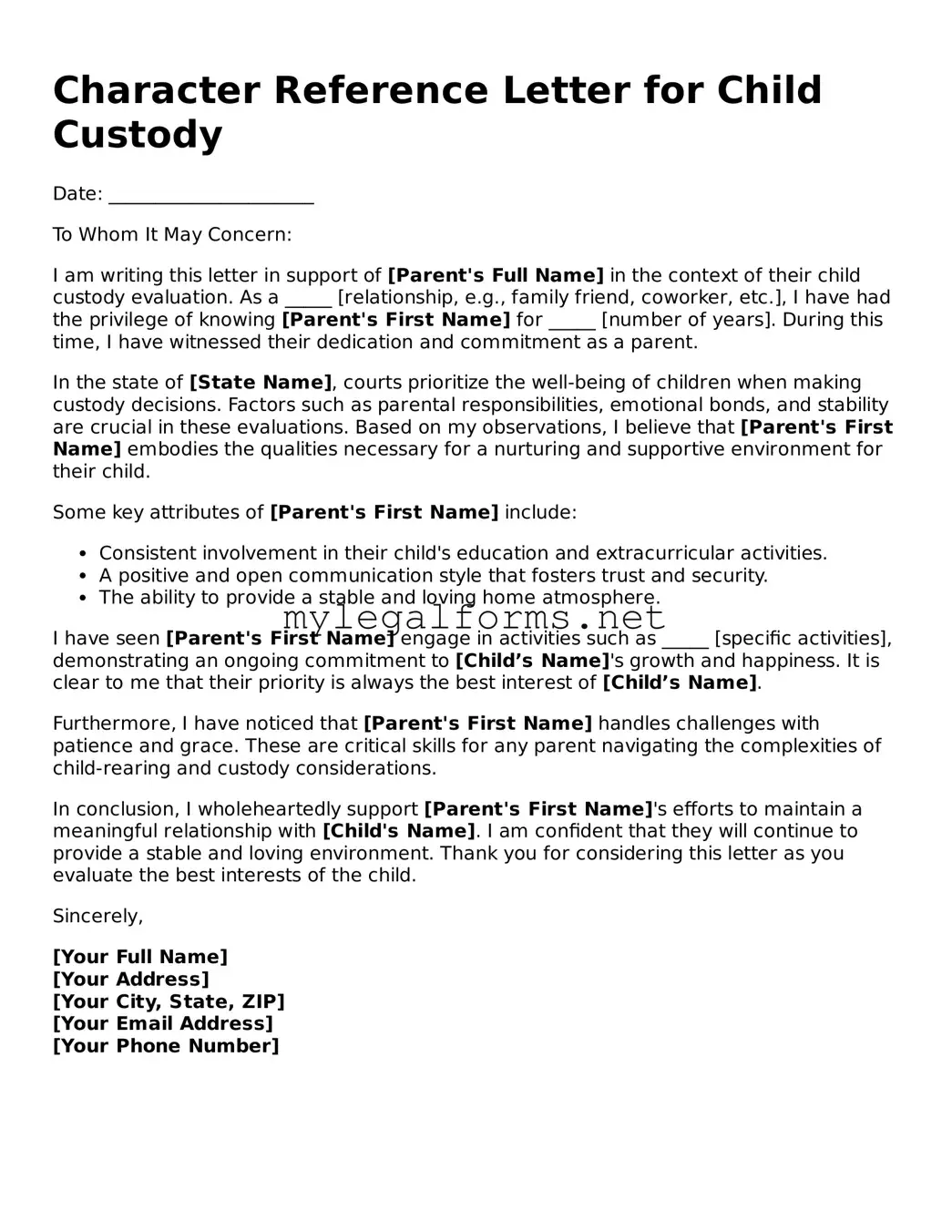Attorney-Approved Character Reference Letter for Child Custody Form
The Character Reference Letter for Child Custody form is a written document that helps support a parent's case in custody proceedings. It provides personal insights about a parent's character, parenting abilities, and relationship with their child. This letter can be a valuable tool in demonstrating a stable and nurturing environment for the child.
Launch Character Reference Letter for Child Custody Editor

Attorney-Approved Character Reference Letter for Child Custody Form
Launch Character Reference Letter for Child Custody Editor

Launch Character Reference Letter for Child Custody Editor
or
⇓ PDF Form
Complete the form at your pace — fast
Finish your Character Reference Letter for Child Custody online and download the final version.